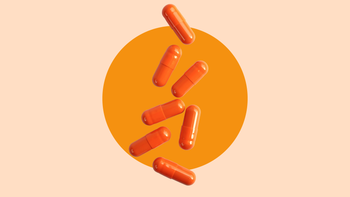
13 Effexor (Venlafaxine) Side Effects You Should Know About
Key takeaways:
Effexor (venlafaxine) is an antidepressant that treats certain mental-health conditions. Common Effexor side effects include drowsiness, nausea, and constipation. They often resolve on their own over time.
Other possible Effexor side effects include sweating, dry mouth, and anxiety. Sexual side effects, insomnia, and decreased appetite can also occur.
More serious Effexor side effects include abnormal bleeding, blurred vision, and serotonin syndrome. Suicidal thoughts may also occur in rare cases. Be sure to seek medical attention if you have any signs of a serious Effexor side effect.
Access savings on related medications
Table of contents

Effexor (venlafaxine, venlafaxine ER) is FDA approved to treat mental health conditions such as depression and anxiety. It belongs to a class of antidepressants called serotonin and norepinephrine reuptake inhibitors (SNRIs). SNRIs work by affecting levels of serotonin and norepinephrine (chemical messengers) in the brain. Because SNRIs are effective and well-tolerated, they’re often one of the first antidepressants healthcare professionals recommend.
But as with all medications, Effexor carries the risk of side effects. Some Effexor side effects are mild and may resolve with time. But others can be more serious.
Effexor side effects at a glance
Below is a list of common and rare Effexor side effects reported in clinical studies. This isn’t a comprehensive list, so be sure to talk to your prescriber if you have additional questions about side effects while taking Effexor.
Search and compare options
Common Effexor side effects:
Nausea
Headache
Dizziness
Drowsiness
Constipation
Sweating
Dry mouth
Insomnia
Anxiety
Weight loss
Decreased appetite
Changes to sex drive
Erectile dysfunction
Blurred vision
Rare but serious Effexor side effects:
Withdrawal syndrome (if stopped abruptly)
Worsening of certain types of glaucoma
Increased blood pressure
Increased cholesterol
Increased risk of bleeding
Low sodium levels (hyponatremia)
Seizures
Allergic reaction
Serotonin syndrome
Lung problems (shortness of breath, cough, chest pain)
Effexor also carries a boxed warning for an increased risk of suicidal thoughts and behaviors. This is the FDA’s most serious medication warning.
Let’s take a detailed look at 13 Effexor side effects and how to manage them.
1. Nausea
Nausea was the most common Effexor side effect reported in clinical trials. And the higher your Effexor dosage, the more likely nausea is. The good news is that most nausea symptoms should go away over time as your body adjusts to the medication.
Taking your medication with food and eating smaller, more frequent meals may help manage nausea. Your prescriber may also slowly raise your dose over time to help prevent it.
If your nausea is severe or doesn’t seem to be improving, let your healthcare team know. They may need to change your Effexor dose or how often you’re taking it.
2. Dizziness or drowsiness
It’s common for Effexor to make you feel dizzy or drowsy, especially when you first start taking it or raise your dose. You may also feel dizzy when you stand up from a lying or sitting position (orthostatic hypotension). This is more common in adults age 60 and over.
First-hand accounts: Here are some real-world descriptions of what it feels like to take Effexor (venlafaxine) for depression.
How to know your medication is working: Experts discuss common signs that your antidepressant is working — and what to do if it’s not.
How long does it take for Effexor to work? These pharmacist-backed tips can help you get the most from your medication.
As with nausea, dizziness and drowsiness will often lessen or go away over time. Raising your dose slowly may also help you manage these side effects. Taking Effexor at bedtime can also help if your prescriber OKs it.
Take your time when standing up to prevent falls due to dizziness. It’s also a good idea to use caution when driving until you know how Effexor will affect you. Alcohol or other medications that make you sleepy could make this side effect worse. It’s best to avoid or limit alcohol while you’re taking Effexor. Talk with your healthcare team if your dizziness or drowsiness becomes bothersome.
3. Constipation
Effexor may also cause constipation. You may be able to manage this on your own by eating high-fiber foods, keeping hydrated, and exercising regularly. If needed, an over-the-counter (OTC) stool softener or laxative may also help.
Let your healthcare team know if your constipation becomes bothersome or gets worse. Untreated constipation can become a serious problem if it isn’t managed properly.
4. Sweating
Sweating is another common Effexor side effect. About 12% of people reported sweating in clinical trials, and it’s more likely at higher doses. But few people stopped taking Effexor because of it.
You should be able to manage this side effect with an OTC antiperspirant. But if sweating becomes excessive or bothersome, talk to your prescriber. There are some prescription treatments, like Drysol (aluminum chloride), that might help.
5. Dry mouth
Effexor may cause dry mouth for some people. Unlike other Effexor side effects, dry mouth doesn’t seem to go away over time. So finding ways to manage it might be your best bet.
Some tips include staying well hydrated, chewing sugar-free gum, and avoiding the use of tobacco and alcohol. You can also try sprays or mouthwash that help replace saliva to keep your mouth hydrated.
Dry mouth can make tooth decay more likely. So be sure to keep up with your regular dental appointments to catch any issues early. Let your prescriber know if dry mouth becomes a problem for you. They may make changes to your medication to help manage it.
6. Appetite and weight loss
About 11% of people in clinical studies had a loss of appetite while taking Effexor. This may be one of the reasons Effexor doesn’t seem to cause weight gain the way other antidepressants might.
While this may sound like a good thing, there are times when a loss of appetite may be bothersome. If you’re having trouble eating a balanced diet or can’t maintain your weight, let your prescriber know. They may need to adjust your dose or change your medication.
7. Sexual side effects
Sexual side effects are common with Effexor in both men and women. This can include a low sex drive or trouble achieving an orgasm. Erectile dysfunction can also be an issue. The higher your Effexor dose, the more likely sexual-related side effects become.
Sexual side effects are a common reason people stop taking Effexor. But you shouldn’t stop taking it on your own. It can be dangerous to stop taking Effexor suddenly.
It may feel awkward to bring these side effects up with your healthcare team. But they may be able to adjust your dosage or switch you to a different antidepressant that’s less likely to affect your sex life. So don’t hesitate to let them know if sexual side effects are an issue for you with Effexor.
8. Anxiety and insomnia
It may come as a surprise to hear that anxiety can be an Effexor side effect, since it’s used to treat anxiety. Feeling irritable, nervous, or having trouble sleeping (insomnia) may happen when you first start taking Effexor or after increasing your dose. They can also happen if you stop taking Effexor abruptly.
Anxiety symptoms may resolve as your body adjusts to Effexor. If insomnia is an issue, it may help to have a regular sleep routine. But speak with your prescriber if your anxiety is severe, worsens, or if you have manic symptoms. They may need to change your dose or medication.
9. Serotonin syndrome
A rare but serious Effexor side effect is a condition known as serotonin syndrome. This happens when you have too much serotonin in your body, and it can be dangerous if not treated right away. Serotonin syndrome is more likely if you take Effexor with other medications that also raise serotonin levels, such as other antidepressants or certain migraine medications.
Symptoms of serotonin syndrome include sweating along with a high fever, tremors and/or a fast heart rate. You may also feel confused or agitated and have muscle spasms or stiffness. Seek immediate medical care if any of these symptoms appear while you’re taking Effexor.
10. Blurred vision
Effexor may cause blurred vision for some people. This is because it may slightly dilate your pupils (make them wider). In rare cases, Effexor may cause more serious eye problems, such as angle-closure glaucoma.
Let your prescriber know if you’re having any vision issues after you start Effexor. They can help determine what’s going on and how to manage it. It’s also a good idea to get regular eye exams to help catch any issues as they arise.
11. Abnormal bleeding
Effexor may raise your risk of bleeding. You’re more likely to experience bleeding if you take it with other medications that also have this side effect. This includes nonsteroidal anti-inflammatory drugs (NSAIDs) such as aspirin or ibuprofen (Advil, Motrin). But you may still have bleeding even if you don't take other medications.
Let your prescriber know if you’re having signs of minor bleeding. This can include nosebleeds or bleeding from the gums when brushing your teeth. But if you have large, unexplained bruises, blood in your urine or stool, or bleeding that doesn’t stop, seek medical attention right away.
12. Blood pressure changes
It’s possible that Effexor may raise your blood pressure, especially if you’re taking more than 300 mg per day. But high blood pressure is possible at lower doses, too.
Your prescriber will likely check your blood pressure regularly to keep an eye out for this side effect. But if you notice signs of high blood pressure, such as frequent headaches, be sure to let your healthcare team know right away. They may need to lower your Effexor dose or change your medication.
If you experience a severe headache with symptoms such as chest pain or shortness of breath, seek emergency medical care. These could be signs of a blood pressure emergency.
13. Suicidal thoughts
Effexor has a boxed warning (the most serious FDA warning for medication) for suicidal thoughts and behaviors. This side effect is more likely if you’re under 25 years old, but it can happen to anyone.
If you start having thoughts of harming yourself after starting Effexor, let your healthcare team know or seek emergency care right away.
If you or someone you know is having thoughts of suicide, you’re not alone, and help is available. Call the National Suicide Prevention Lifeline at 988, or text HOME to 741-741 to reach the Crisis Text Line.
Frequently asked questions
Not usually. Overall, Effexor is considered to have a low risk of weight gain. Decreased appetite and weight loss were reported in the initial clinical studies of Effexor. But some later studies show that the risk of weight gain with Effexor may go up with long-term use. Talk to your prescriber about any weight-related concerns you have while taking Effexor.
Effexor may increase heart rate and blood pressure in some people. It can also raise the risk of an irregular heartbeat called long QT syndrome. In most cases, these heart-related effects are mild and shouldn’t be a concern. But if you have a history of heart problems, talk to your prescriber about whether Effexor is a safe option for you.
You should avoid alcohol while taking Effexor. Alcohol can raise the risk of side effects, and it may also worsen your underlying mental-health condition. It’s also a good idea to limit caffeine if Effexor is causing you to feel anxious or have trouble sleeping.
The bottom line
Effexor (venlafaxine, venlafaxine ER) is an antidepressant used to treat depression and anxiety. Common side effects, such as drowsiness, nausea, and constipation, will often resolve with time. Other side effects can include dry mouth, loss of appetite, and sexual side effects. Excessive sweating, anxiety, and insomnia can also occur.
More serious Effexor side effects include abnormal bleeding, vision problems, and serotonin syndrome. Suicidal thoughts are also possible. Seek medical care right away if any signs or symptoms of these side effects appear.
Why trust our experts?



References
de Abajo, F. J., et al. (2008). Risk of upper gastrointestinal tract bleeding associated with selective serotonin reuptake inhibitors and venlafaxine therapy: Interaction with nonsteroidal anti-inflammatory drugs and effect of acid-suppressing agents. Archives of General Psychiatry.
Gupta, D., et al. (2016). Glaucoma. American Family Physician.
Hussain, L. S., et al. (2023). Physiology, noradrenergic synapse. StatPearls.
National Institute of Dental and Craniofacial Research. (2024). Dry mouth. National Institutes of Health.
Northwind Pharmaceuticals, LLC. (2023). Venlafaxine- venlafaxine tablet [package insert].
Singh, D., et al. (2024). Venlafaxine. StatPearls.
Thase, M. E. (1998). Effects of venlafaxine on blood pressure: A meta-analysis of original data from 3744 depressed patients. The Journal of Clinical Psychiatry.
Wathra, R., et al. (2021). Hypertension and orthostatic hypotension with venlafaxine treatment in depressed older adults. Journal of Psychopharmacology.
Was this page helpful?
Related Articles
Browse medications
View AllResearch prescriptions and over-the-counter medications from A to Z, compare drug prices, and start saving.




























